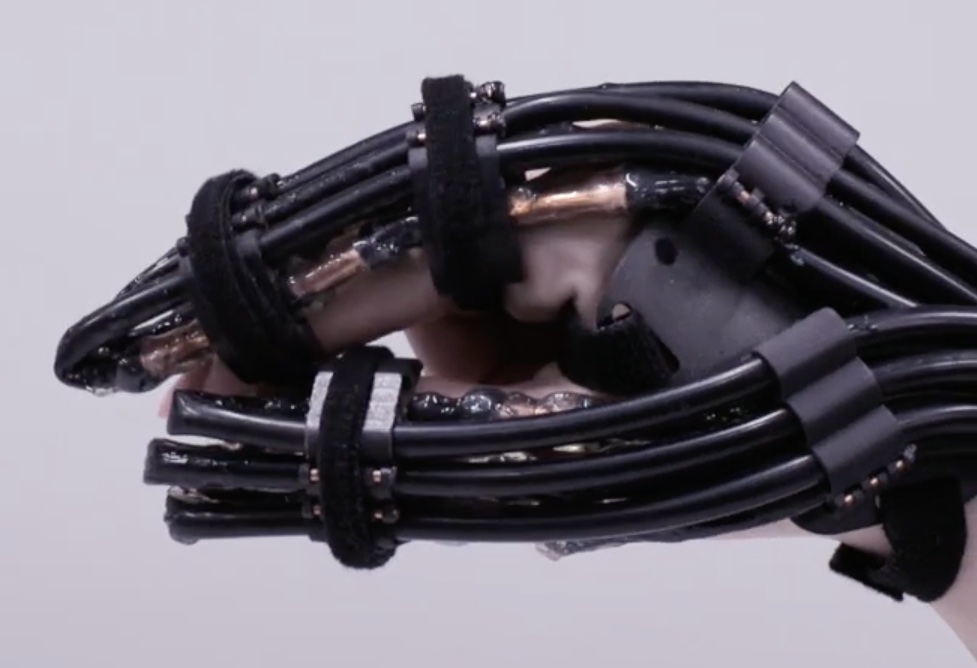DexteriSync lets you walk a mile in the gloves of a user with manual disability

Good designers prioritize the user experience — particularly the experience of users with disabilities that affect their perception and fine motor skills. A young person without disabilities, for example, may feel that jars are easy to open, while an elderly person with reduced hand strength may have the complete opposite experience. To help designers better understand the experience of people living with disabilities related to hand dexterity, a team of graduate students from Keio University and the University of Maryland developed DexteriSync.
DexteriSync is an exoskeleton-like device worn on the hand. But unlike most exoskeletons, DexteriSync reduces the user’s ability instead of expanding it. It does so via thermal manipulation. If you’ve ever had numb hands following a snowball fight, you know how much the cold can affect your dexterity. In fact, skin temperature is one of the biggest factors related to hand and finger dexterity. By controlling the user’s skin temperature, DexteriSync is able to induce a reduction in dexterity and that could be useful to designers that want to make their products accessible to those living with disabilities.
DexteriSync is able to cool the wearer’s skin by pumping cold water through tubes attached to the 3D-printed exoskeleton frame. Copper contacts on the tubes help to make the thermal transfer more efficient. Peltier coolers remove heat from the pumped water, with an Arduino UNO Rev3 board controlling that process and monitoring the water temperature with a K-type thermocouple paired with a MAX6675 amplifier.
The team performed two user studies to evaluate DexteriSync. The first was intended to test the dexterity of users. The goal of the second was to determine if DexteriSync could affect user thermal perception. Both studies found that DexteriSync did have a noticeable effect.